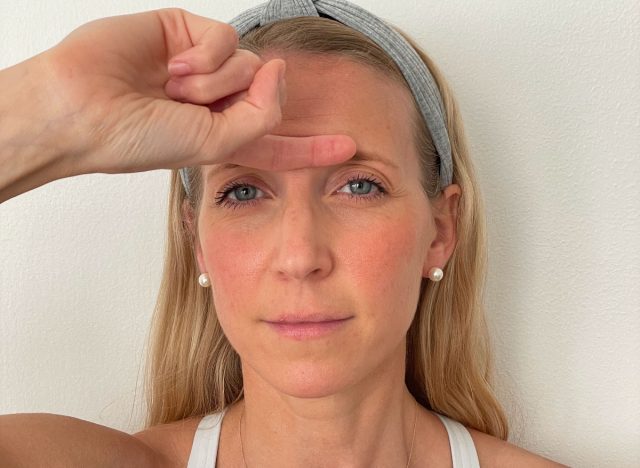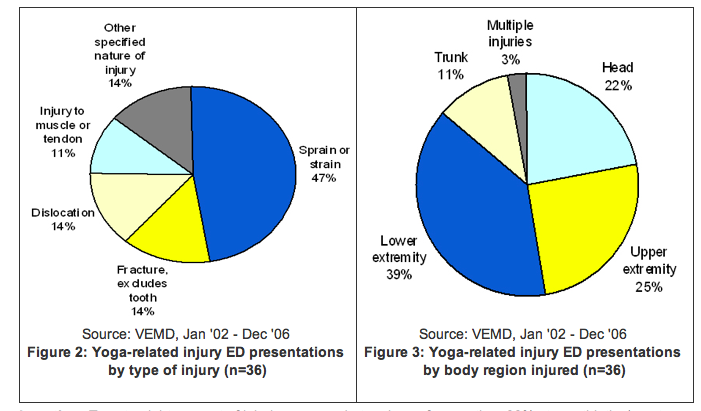
Yoga can have therapeutic effects in many areas, including medicine, psychology and the arts. Modern medicine is effective at treating physical illnesses and disorders, but its effectiveness is limited when it comes to addressing the emotional, intellectual, and personality layers of a person's life. Yoga can help improve your physical and mental health. Even seasoned yoga practitioners can apply yoga for anxiety and depression.
Yoga is a holistic practice that incorporates the whole person into the healing process. Pancha Maya Kosha Model aids therapists to include the physical body, as well as other health aspects. Many yoga therapists are trained using a biopsychosocial model that focuses on pain and the mind. The healing process will be more effective and quicker regardless of the underlying cause.

The benefits of yoga as therapy are numerous. It improves one’s physical, emotional, as well as spiritual health. Therapy is designed to improve your health. Although yoga cannot cure every ailment it can help you heal mentally and physically. Yoga's therapeutic benefits are evident in its positive effects on mental and physical well-being. Meditation can be a key to improving your quality of life.
Yoga therapy has many benefits beyond its mental and physical health benefits. There are numerous health and wellness benefits associated with it. It can even increase a person's quality life. As a form therapy, yoga can reduce stress, alleviate depression, and lower blood pressure. Yoga can be used as an alternative medicine. However, it is not meant to be a treatment. You can find out more by consulting a yoga therapist.
Yoga as therapy is a great way for improving circulation and bloodflow in the body. Better circulation means that oxygen-rich blood can reach all of the body's tissues and organs. This prevents strokes or heart attacks. It also lowers resting pulse rate and increases endurance. This encourages weight gain, and decreases binge-eating. When practicing yoga, a patient will have a much easier time adapting to a new lifestyle.

Yoga can be used as a therapy to help with anxiety and stress. It is a great way to learn how to manage your stress levels. The therapeutic benefits of yoga can also be beneficial for people with depression. This meditation can be a wonderful way to ease your pain. For anxiety and depression, you can join a meditation group or take up Yoga. Depending on the nature of your condition, yoga may be beneficial for you.
FAQ
Which workout is the most effective for men
The answer will depend on what you are searching for. Cardio exercises are great for anyone looking to lose weight.
If you want to just build muscle mass, strength training is better as it increases lean body weight.
Both types are good for improving your overall health.
I recommend HIIT (or sprint interval training) if you want to be fit quickly. This type training will help you quickly lose fat by increasing your metabolism. It also boosts your endurance to continue training even when you feel tired.
What does milk do?
When you next buy milk, think of other uses. You might also find it helpful to stop drinking coffee.
Milk has been proven to be beneficial to both children and adults alike. Milk is rich in nutrients for children, including vitamin D and calcium.
It promotes weight gain, digestion, bone strength, and aids digestion. Dairy products are more beneficial for adults than any other food.
People who have difficulty digesting milk are also likely to be able to enjoy its many benefits, even if they do not have stomach problems.
Drink more milk than soda and juice. You can strengthen your teeth with the extra calcium and vitaminD found in milk.
If you don't like the taste of milk, you can always make your yogurt using plain low-fat milk. Yogurt can be a great substitute for milk, as it has fewer calories and more protein.
Yogurt also includes probiotics. These help in digestion and improve immunity.
Take a glass warm milk before you go to bed if you are having trouble sleeping. Warm milk relaxes muscles and increases serotonin levels, helping you get a good night's rest.
Is Cardio Better Than Strength Training?
Both are equally good. For those who want to gain muscle quicker, cardio is a better choice.
Cardio burns a lot more calories per minute that strength training and is more effective at burning fat.
Although strength training can increase muscle mass, it is more difficult than cardio to do so.
Statistics
- According to the American Academy of Dermatology (AAD), men over 50 are at a heightened risk of developing it. (healthline.com)
- By John Thompson Take a whopping 38% off a set of PowerBlock Pros. (menshealth.com)
- Get free shipping and 25% off today. (healthline.com)
- Candidates and applicants must pass all four tests at 70% (minimum level) to graduate from Basic Deputy U.S. Marshal (BDUSM) Training. (usmarshals.gov)
- Are You One of the 20% of Guys (mh.co.za)
External Links
How To
What nutrients does a man require daily?
For healthy growth and development, men need to eat a balanced diet. The body needs vitamins, minerals as well as proteins, carbohydrates and fats.
Also, the male body requires certain nutrients at specific times during the day. When you're sleeping, your body uses energy from food for hormones, proteins, and enzymes. You use protein to build muscles and repair damaged tissue when you wake up.
At night, your body breaks down fat and stores the extra energy as glycogen. Your body still requires sufficient nutrients and calories even though it needs less calories. If you feel hungry, you may consider having a snack during the evening.
When you work out, you need adequate levels of carbs and protein to fuel your muscles. After a hard workout, muscle soreness may occur.
You must ingest carbs and protein within two hours of training to prevent this. To get energy from glucose, your body will start to degrade stored glycogen.
Also, protein must be consumed immediately after your workouts. This prevents muscle tissue from being broken down while you are sleeping.
Your body can produce lactic acid during intense physical activity. Lactic acid builds up in the bloodstream and causes fatigue. You can avoid this by eating carbohydrates-rich foods like fruits and veggies.
Carbohydrates are a good source of energy to help you recover from hard exercise.
You may also want to include lean meats and fish, as well as yogurt, cheese, yogurt, beans and nuts in your diet.
All of these foods contain high-quality protein. Protein is important for muscle growth and repair. Protein also supplies the amino acids your body requires to make sex hormones, such as testosterone.
For healthy skin, hair and joints, it is important to eat enough fats. Healthy men need to consume between 20%-35% of their total calories from fat.
Fat helps protect your heart health and prevents cancer. It helps keep your brain working properly.
You can get most of the fat you need from vegetable oils like olive oil, sunflower oil, corn oil, soybean oil, peanut oil, and safflower oil.
These oils have high amounts of monounsaturated oil fatty acids, (MUFAs). MUFAs lower cholesterol and decrease inflammation. They protect your cells and prevent damage from free radicals.
Saturated fats (SFAs), are found mainly in animal products such as meat, milk products, and butter. SFAs can raise LDL ("bad") cholesterol levels and increase triglycerides. They can also increase weight and reduce belly fat.
Polyunsaturated oils (PUFAs), are found in plant-based foods like nuts, seeds and vegetable oils. PUFAs can improve cardiovascular function and reduce inflammation. They are also good for controlling blood sugar and cholesterol.
Men with low HDL ("good") cholesterol often suffer from erectile dysfunction. A high intake of saturated fats leads to higher levels of bad cholesterol.
Men who eat lots of red meat or pork can develop prostate problems. This is because these foods contain high amounts of nitrates. When heated, nitrates are converted to nitrosamines. These compounds can cause cancer.
Most processed meats contain nitrites and other harmful chemicals. You should avoid them.
The American Heart Association suggests that no more than two servings per week of red meat should be consumed. Instead, choose poultry, fish, legumes, tofu, whole grain bread, and cereals.